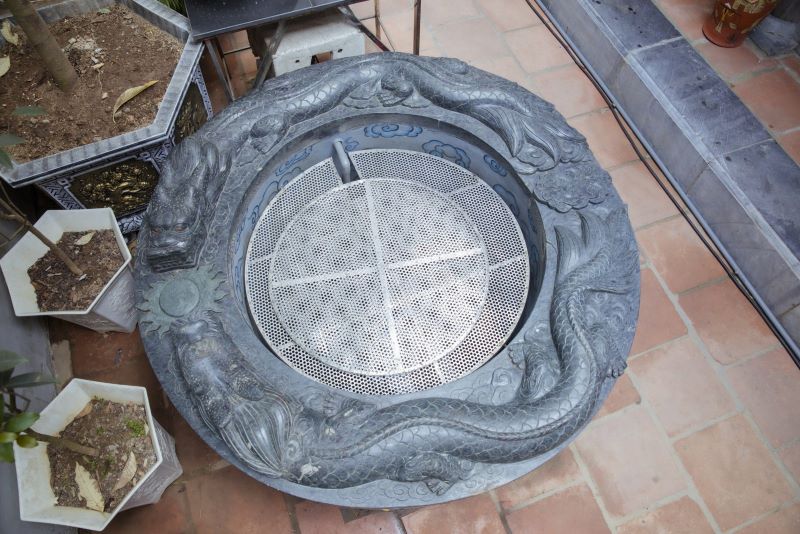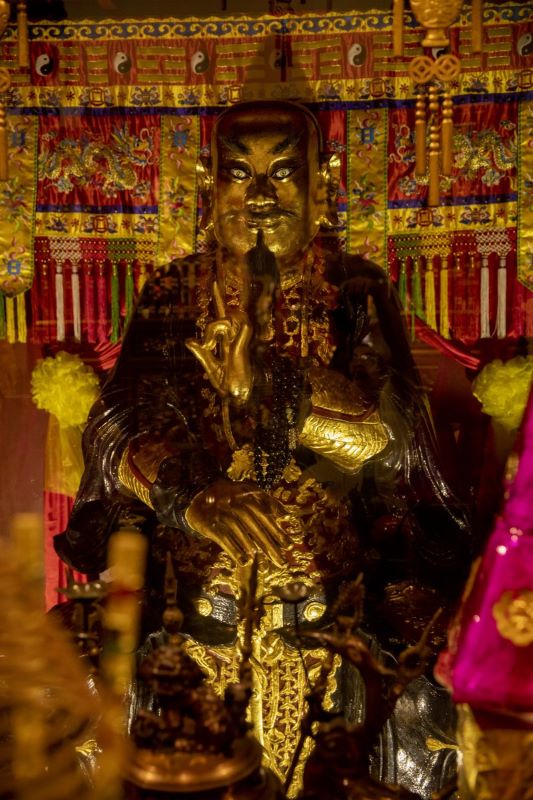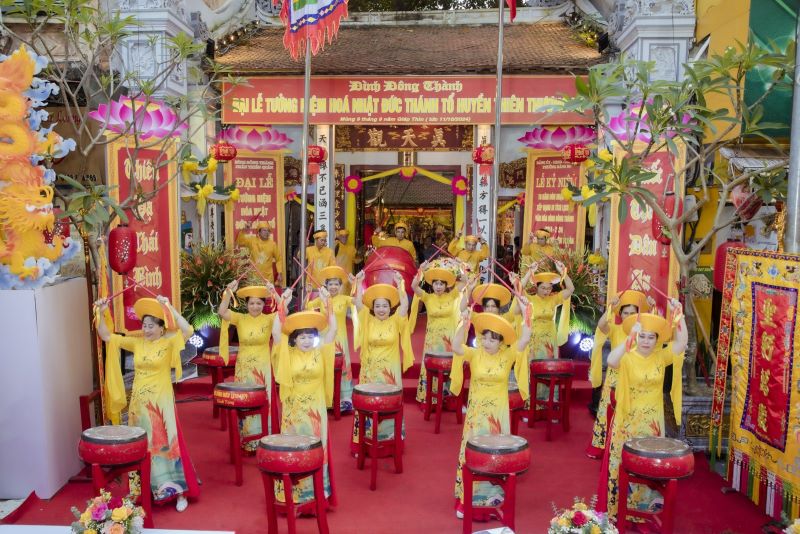Dong Thanh Communal House: Typical historical and cultural relic of Hanoi's Old Quarter
Dong Thanh Communal House, also known as Hang Vai Communal House, is a place of worship for Saint Huyen Thien Tran Vu and houses a 200-year-old ancient water well with intricate carvings.
Nestled in the heart of Hanoi's Old Quarter Old Quarter, Dong Thanh Communal House is an attractive destination on the tour of the capital's typical historical and cultural relics.
Dong Thanh Communal House is also known as Hang Vai Communal House due to its location at 7 Hang Vai Street, Hanoi. This is a place to worship Saint Huyen Thien Tran Vu (Zhenwudadi) of Taoism.
It used to be a communal house of two villages, Dong Thanh and Dong Thanh Thi. During the reign of Minh Mang (1820-1840), the two villages were merged into Dong Thanh village.
| The 200-year-old welll has elaborate carvings. Photo: Tinh Le/The Hanoi Times |
The relic contains many valuable vestiges such as: Bronze statue of Saint Huyen Thien Tran Vu; eight stone steles from the Nguyen dynasty recording the construction and restoration process and the benefactors; nine earliest royal decrees, as well as many horizontal lacquered boards and parallel sentences.
The statue of Saint Huyen Thien Thien Tran Vu appears as a seated Taoist hermit, with his left hand performing magic and his right hand holding a sword wrapped in a snake and resting on the back of a turtle, just like the famous statue of Saint Huyen Thien Thien Tran Vu at Quan Thanh Temple in Tay Ho district.
In the winter of 1946, during the 60 days and nights of fighting at the beginning of the National Resistance War in Hanoi, the army and people of Hanoi set up an ambulance station of Military Region I at the communal house.
After more than 200 years of existence, the relic has been seriously degraded, assuming more than a function of a place of worship, being the seat of a municipal agency and a tenement of 12 households. To preserve and promote one of the cultural values of the Old Quarter, in October 2011, the Hanoi government moved the agency and dwellers out of the relic's premises for restoration.
During the restoration process, the original traditional architecture of the communal house was kept almost intact. At the end of April 2013, work began on its restoration and was completed in June 2014.
| The statue of Saint Huyen Thien Tran Vu appears as a seated Taoist hermit. Photo: Tinh Le/The Hanoi Times |
Due to its historical significance and value, in October 2014, Dong Thanh communal house with a total area of 460 sq.m. was classified by the Hanoi People's Committee as a city-level historical architectural and artistic relic. To date, it has become not only a place of worship for the people but also an attractive tourist destination.
According to Le Minh Duc, Chairman of Hang Bo Ward People's Committee, the reputation of Dong Thanh Communal House as a tourist attraction can be further promoted to create interesting experiences steeped in local culture for domestic and foreign tourists.
"Preserving the Dong Thanh Communal House is not only about preserving the architecture and rituals but also about making it part of the economic development strategy. Promoting the historical and cultural values of the communal house will attract domestic and international tourists and help create a stable source of income for the local community," Duc said.
| An art performance at the Dong Thanh Communal House Festival. Photo: Tinh Le/The Hanoi Times |
"Through a variety of events, we hope the community will participate and promote the spirit of solidarity, sharing with people and domestic and foreign tourists the unique culture of the Vietnamese people," said Nguyen Duc Tien, director of Dong Thanh Communal House, adding that such ritual acts help educate people, especially the younger generation, about the importance of heritage and how we can all work to preserve and promote it.
Set in Hang Bo Ward, Hoan Kiem District, Hanoi, the Dong Thanh Communal House is an important religious and cultural artifact. In addition to being a temple of worship, it is a representation of Hanoi culture. This site preserves important historical markers from the nation's defense and development process, demonstrating the interconnectedness of past and present.














